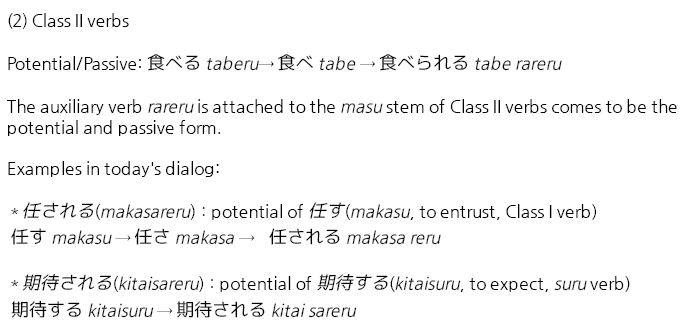サボっているところを先生に見られた。
I was seen skipping class by the teacher.(→passive)
Why is "o" used here rather than "ni"? If the sentence was "sabotte iru toki ni sensei ni mirareta" then "ni" would be used, and "tokoro" and "toki" mean the same thing in those two sentences.
7. 村上アグネス: うん、入社早々大きな仕事を任されちゃって、全然終わらないん
だ。
8. 橋本雄介: そうか、大変だなあ。でも、すぐに大事な仕事を任されるなんて、
期待されてるね。
7. AGUNESU: Un, nyūsha sōsō ōki na shigoto o makasare chatte, zenzen
owaranai n da.
8. YŪSUKE: Sō ka, taihen da nā. Demo, sugu ni daiji na shigoto o makasareru
nante, kitaisarete ru ne.
7. AGNES: Well, I was given a huge project immediately after joining the
company. And I can't seem to finish it.
8. YUSUKE: Wow, that sounds tough. But they must have a lot of faith in you for
them to give you such a huge project.
From the PDF:

It clearly states that "makasareru" and "kitai sareru" in the dialogue is potential form rather than passive.
However, they both look like passive to me. I can't understand how they could be potential. Can somebody explain them to me?
10. 橋本雄介: いや、また週末にでも食事にどうかなあ、と思って。
10. YŪSUKE: Iya, mata shūmatsu ni demo shokuji ni dō ka nā, to omotte.
10. YUSUKE: Well. I thought we could do dinner this weekend.
There are lots of different particles here and most of them don't seem to be necessary. Why not just "ni"? What are the "de" and "mo" doing?


